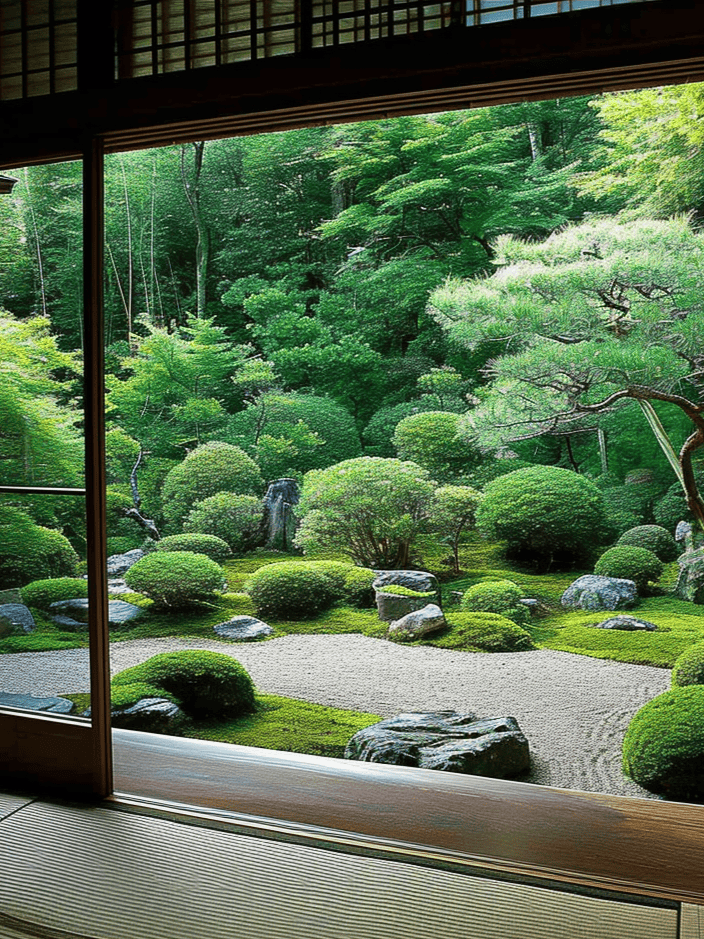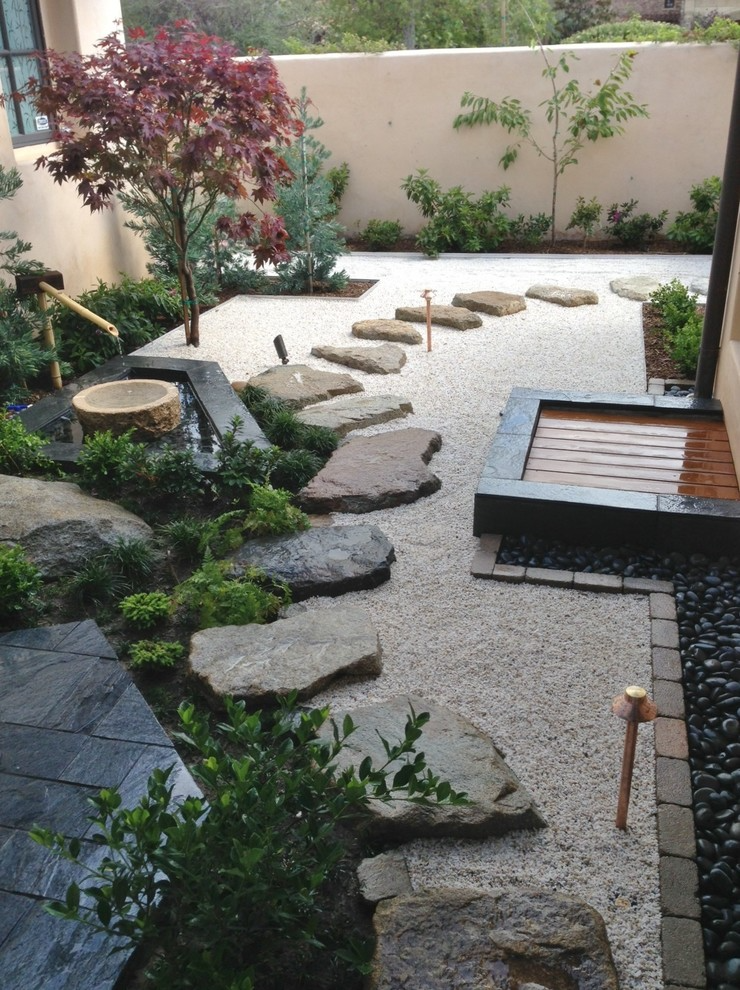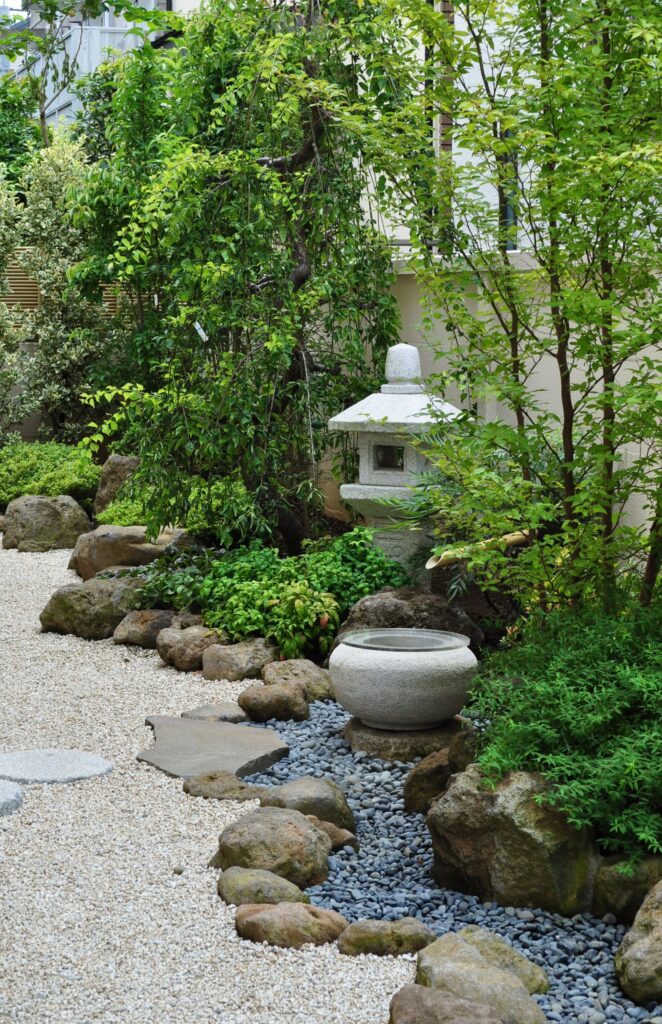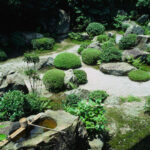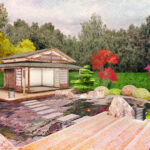Zen garden design is a traditional form of Japanese garden that focuses on simplicity, tranquility, and minimalism. These gardens are often found in temples, meditation centers, and private residences to provide a peaceful and meditative space. The design of a Zen garden is based on the principles of balance and harmony, with carefully chosen elements that promote relaxation and reflection.
One of the key features of a Zen garden is the use of rocks or stones, which symbolize mountains or islands. These rocks are strategically placed in a way that mimics the natural landscape, creating a sense of serenity and stability. Sand or gravel is often raked into patterns around the rocks to represent water or waves, adding a dynamic element to the garden.
Another important element in Zen garden design is the use of plants, particularly moss, ferns, and bamboo. These plants are carefully selected for their ability to thrive in a low-maintenance environment and their ability to create a sense of lushness and tranquility. The use of greenery in a Zen garden helps to soften the hard lines of rocks and stone, creating a harmonious balance between the natural elements.
Water features are also commonly found in Zen gardens, as they symbolize purity, tranquility, and the flow of energy. A small pond or stream, along with strategically placed boulders and plants, can create a calming and serene atmosphere within the garden. The sound of running water can also help to drown out external noise and create a peaceful environment for meditation and reflection.
Pathways and bridges are often incorporated into Zen garden design to encourage visitors to slow down and appreciate the beauty of the space. These features can be made from a variety of materials, such as wood, stone, or gravel, and are designed to lead visitors through the garden in a mindful and contemplative manner. The design of these pathways is often asymmetrical and meandering, in keeping with the natural flow of the landscape.
Overall, the design of a Zen garden is centered around creating a space that promotes relaxation, contemplation, and mindfulness. By incorporating elements such as rocks, plants, water features, and pathways, a Zen garden can provide a sanctuary for those seeking peace and tranquility in a busy world. Whether in a public park or a private backyard, the beauty and simplicity of a Zen garden can inspire a sense of calm and serenity in all who visit.
 yishifashion Where Outdoor Dreams Become Reality
yishifashion Where Outdoor Dreams Become Reality
